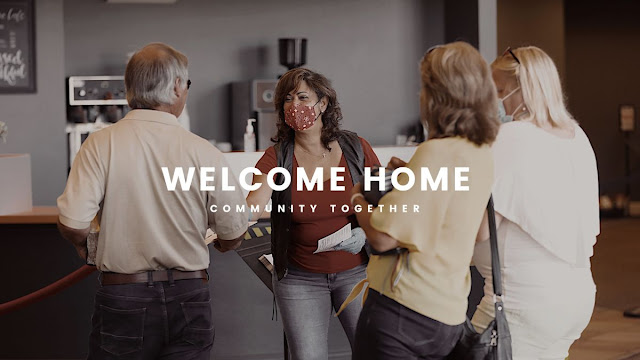5 Volunteer Statements for Your Ministry
 |
| Photo by jules a. on Unsplash |
Usually when I use their insider language, their eyes light up, and they're far more motivated to help me because we have something in common.
No matter what job you do there are certain phrases and words that are specific to your culture. Most of these words and phrases develop naturally over time as a result of events, ministries, or your denomination. For example, I’m in the Assemblies of God. Here are just a few of the acronyms that any minister in the AG (see what I did there) will know.
- BGMC
- STL
- LFTL
- ACMR
- GC
- JBQ
- AGWM
But that’s just your denomination. You also have insider language for your church and a lot of times your own ministry. And that’s ok as long as you translate that information on your outward facing media. But that’s another post.
If you want to create an environment of belonging, family, and teamwork, one where your volunteers feel like they’re “in” and accepted, then one of the best ways is to create language around your mission and values.
I first heard this idea from Andy Stanley in one of his leadership talks. Thinking about it, I was confused and at a loss as to how to get started. However, over time, I realized that I said the same things over and over to my volunteers. These sayings rolled off my tongue and created the values and expectations of the ministry. The ones who served with me longest started to repeat them and train others. So, after years, I wrote them down.
5 Volunteer Statements
1. Work one, worship one
There are pros and cons to having multiple services. Yes, your volunteer needs are greater, but your volunteers don’t have to miss a service. Whether they serve once, twice, or four times a month, I always push my volunteers to go to service on the same day they serve. Not everyone does, and I don’t police it. But it’s still a value.We believe that you can only serve out of your overflow, and if you’re constantly giving, you’ll eventually run out. You and your volunteers need to make sure you’re being fed and going to service is a great way to do that.
2. Family comes before ministry
I can’t tell you how many times I’ve had volunteers tell me they feel bad for calling out when they have a sick kid, parent, or family tragedy. In all those times, I always tell them, family first. Your volunteers’ first ministry is to their families. If they’re always with you, then they may be missing out on valuable time with the people they love most.I’ve had some pastors throughout my life make me feel bad for choosing family time over church commitments. I’m sure looking back now they regret it, but I made the decision I would never do that no matter how difficult things became for me.
3. Build relationships over giving content
Discipleship comes out of relationship. We are social people and even though we are more connected than ever before, we are also lonelier. The people in your ministry desire true authentic relationships and community.When serving, I want my volunteers to focus on the relationships over covering the content. So, when they’re up against the clock and having to decide on completing the lesson or diving deeper into questions and stories with the group, the relationship building always wins. Those conversations are where relationships are built and some of the hardest questions are answered.
At one of the churches I served, my preschool coordinator told me she wanted to quit soon. My first questions were, “Who can take your place? Who have you been training?” Unfortunately, the people who had been serving with her for years also wanted to take a step back, and we would be hard pressed to find a replacement.
4. Who’s got next?
No one is going to be in their position forever. Not you or your volunteers. One of the best questions you can ask your volunteers is “Who do you know that can do your job?” They may not always have an answer, but when they do, that’s a new volunteer lead. In addition, when your volunteers do leave, you won’t be in a complete lurch.At one of the churches I served, my preschool coordinator told me she wanted to quit soon. My first questions were, “Who can take your place? Who have you been training?” Unfortunately, the people who had been serving with her for years also wanted to take a step back, and we would be hard pressed to find a replacement.
It was a tough position to be in, but it can be avoided if you’re asking who’s got next, especially to your top volunteer leaders.
Making the content personal answers the question, “When am I ever going to use this?” It makes you authentic with all your flaws and foibles and helps those you’re leading to know that it’s ok to mess up and God’s grace is sufficient.
I took these five statements and put them in an infographic and placed them throughout my ministry areas where volunteers will see them. They served as a constant reminder that what we are doing is important and what we value as long as you serve here. You can see the graphic below. I made it in Canva.
I encourage you to come up with your own statements. They don’t have to be these 5, and you don’t have to do it alone. Whatever they are, you need to embody them. You never want to sound like the recording on a service call where they say, “Your call is important to us. Please hold” and then make you wait for 15 minutes or longer. If you say it, you need to believe it and live it out. Your volunteers will always follow what you do more than what you say.
What statements do you use in your ministry?
5. Whenever possible, make it personal
This goes along with building relationships, but I would tell my volunteers to feel free to share their life stories as long as it was age appropriate. The Bible is full of stories from another time and another culture. It can become just words on the page. But the Bible is alive with real people and real problems and ones we can relate too. After telling the story of Jacob wrestling with God, you can follow up with a time you wrestled with God and what the result was. (Hip displacement and all)Making the content personal answers the question, “When am I ever going to use this?” It makes you authentic with all your flaws and foibles and helps those you’re leading to know that it’s ok to mess up and God’s grace is sufficient.
I took these five statements and put them in an infographic and placed them throughout my ministry areas where volunteers will see them. They served as a constant reminder that what we are doing is important and what we value as long as you serve here. You can see the graphic below. I made it in Canva.
I encourage you to come up with your own statements. They don’t have to be these 5, and you don’t have to do it alone. Whatever they are, you need to embody them. You never want to sound like the recording on a service call where they say, “Your call is important to us. Please hold” and then make you wait for 15 minutes or longer. If you say it, you need to believe it and live it out. Your volunteers will always follow what you do more than what you say.
What statements do you use in your ministry?





Comments
Post a Comment